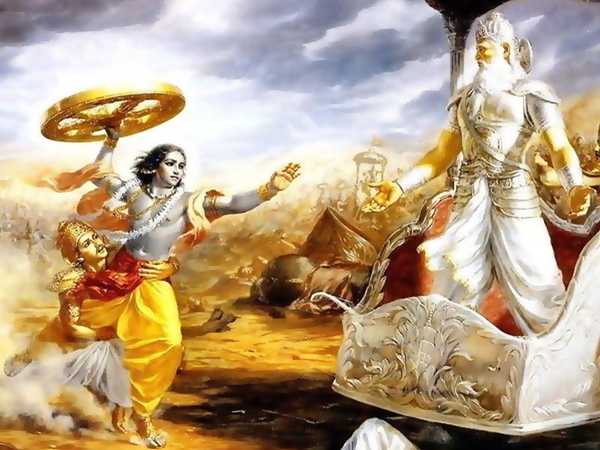Chapter 49

“Saunaka said, ‘Tell me again, in detail,–all that king Janamejaya hadasked his ministers about his father’s ascension to heaven.’
‘Sauti said, ‘O Brahmana, hear all that the king asked his ministers, andall that they said about the death of Parikshit.’
“Janamejaya asked, ‘Know ye all that befell my father. How did thatfamous king, in time, meet with his death? Hearing from you the incidentsof my father’s life in detail, I shall ordain something, if it be for thebenefit of the world. Otherwise, I shall do nothing.’
‘The minister replied, ‘Hear, O monarch, what thou hast asked, viz., anaccount of thy illustrious father’s life, and how also that king of kingsleft this world. Thy father was virtuous and high-souled, and alwaysprotected his people. O, hear, how that high-souled one conducted himselfon earth. Like unto an impersonation of virtue and justice, the monarch,cognisant of virtue, virtuously protected the four orders, each engagedin the discharge of their specified duties. Of incomparable prowess, andblessed with fortune, he protected the goddess Earth. There was none whohated him and he himself hated none. Like unto Prajapati (Brahma) he wasequally disposed towards all creatures. O monarch, Brahmanas andKshatriyas and Vaisyas and Sudras, all engaged contentedly in thepractice of their respective duties, were impartially protected by thatking. Widows and orphans, the maimed and the poor, he maintained. Ofhandsome features, he was unto all creatures like a second Soma.Cherishing his subjects and keeping them contented, blessed with goodfortune, truth-telling, of immense prowess, he was the disciple ofSaradwat in the science of arms. And, O Janamejaya, thy father was dearunto Govinda. Of great fame, he was loved by all men. And he was born inthe womb of Uttara when the Kuru race was almost extinct. And, therefore,the mighty son of Abhimanyu came to be called Parikshit (born in anextinct line). Well-versed in the interpretation of treatises on theduties of kings, he was gifted with every virtue. With passions undercomplete control, intelligent, possessing a retentive memory, thepractiser of all virtues, the conqueror of his six passions of powerfulmind, surpassing all, and fully acquainted with the science of moralityand political science, the father had ruled over these subjects for sixtyyears. And he then died, mourned by all his subjects. And, after him, Ofirst of men, thou hast acquired this hereditary kingdom of the Kurus forthe last thousand years. Thou wast installed while a child, and art thusprotecting every creature.’
“Janamejaya said, ‘There hath not been born in our race a king who hathnot sought the good of his subjects or been loved by them. Beholdespecially the conduct of my grandsires ever engaged in greatachievements. How did my father, blessed with many virtues, meet with hisdeath? Describe everything to me as it happened. I am desirous of hearingit from you!’
“Sauti continued, ‘Thus directed by the monarch, those councillors, eversolicitous of the good of the king, told him everything exactly as it hadoccurred.’
‘And the councillors said, ‘O king, that father of thine, that protectorof the whole earth, that foremost of all persons obedient to thescriptures, became addicted to the sports of the field, even as Pandu ofmighty arms, that foremost of all bearers of the bow in battle. He madeover to us all the affairs of state from the most trivial to the mostimportant. One day, going into the forest, he pierced a deer with anarrow. And having pierced it he followed it quickly on foot into the deepwoods, armed with sword and quiver. He could not, however, come upon thelost deer. Sixty years of age and decrepit, he was soon fatigued andbecame hungry. He then saw in the deep woods a high-souled Rishi. TheRishi was then observing the vow of silence. The king asked him about thedeer, but, though asked, he made no reply. At last the king, alreadytired with exertion and hunger, suddenly became angry with that Rishisitting motionless like a piece of wood in observance of his vow ofsilence. Indeed, the king knew not that he was a Muni observing the vowof silence. Swayed by anger, thy father insulted him. O excellent one ofthe Bharata race, the king, thy father taking up from the ground with theend of his bow a dead snake placed it on the shoulders of that Muni ofpure soul. But the Muni spake not a word good or bad and was withoutanger. He continued in the same posture, bearing the dead snake.'”




